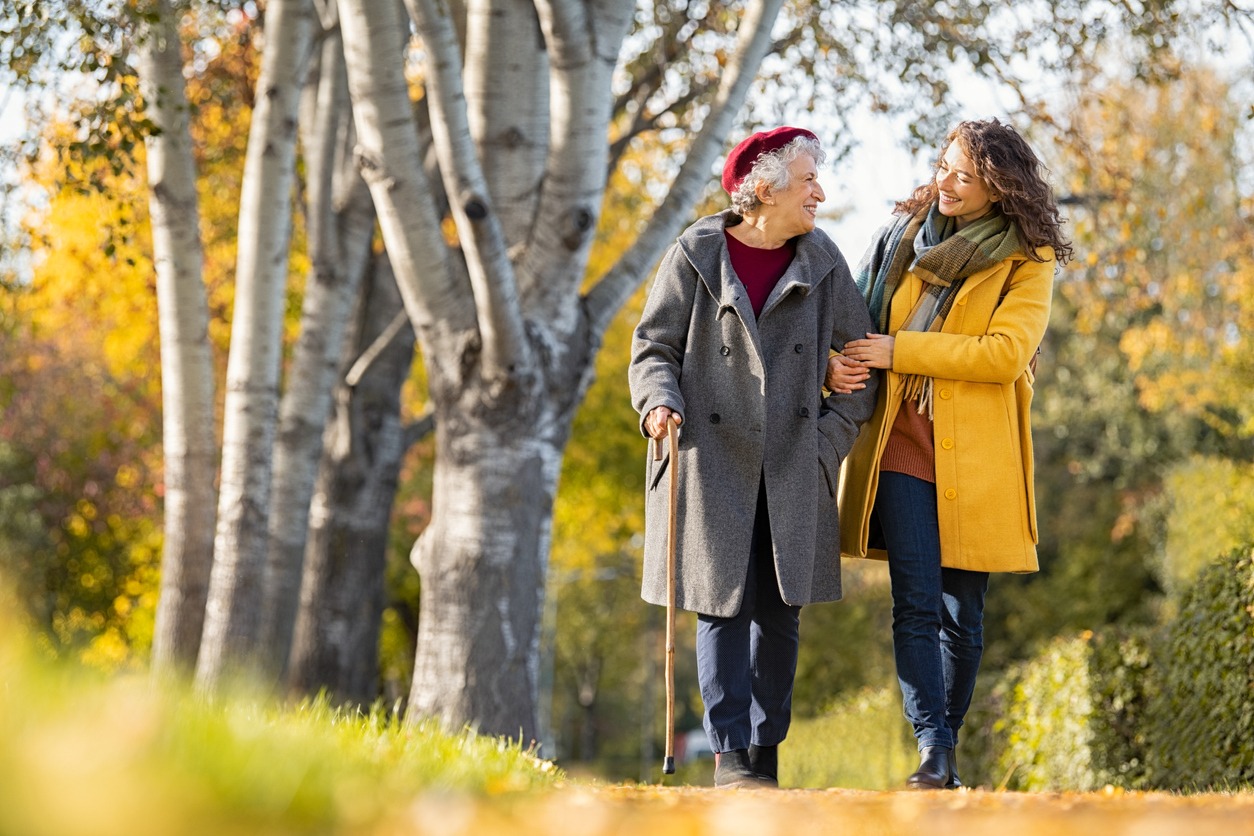Aging is a natural part of life, and it’s important to take good care of ourselves as we grow older. For parents, healthy aging is especially important because they want to stay active and independent for as long as possible. But with so much conflicting information out there, it can be tough to know where to start.
In this blog post, we will explore various aspects of healthy aging for parents, including exercise routines, nutrition guidelines, and strategies for maintaining mental sharpness. We will also discuss the importance of social connections and emotional support, as well as the benefits of preventative healthcare measures such as vaccinations and routine screenings. By implementing these practices, parents can prepare to age gracefully and maintain their independence as they approach their senior years.

Defining healthy aging
Healthy aging refers to the process of growing old while maintaining physical, mental, and social well-being. It is a dynamic process that varies from individual to individual and is influenced by a range of factors including genetics, lifestyle, and environment.
Healthy aging involves avoiding or managing chronic diseases and disabilities, maintaining cognitive function, and staying socially connected. It also involves adopting healthy behaviors such as regular exercise, healthy eating, and stress management.
The goal of healthy aging is to promote quality of life and independence for older adults, enabling them to continue to contribute to society and achieve their goals and aspirations.
Importance of healthy aging
As parents age, it becomes increasingly important to maintain both physical and mental well-being. Physical activity and exercise can help prevent chronic illnesses such as heart disease, stroke, and diabetes, and can also improve balance and mobility, reducing the risk of falls.
Mental well-being is just as crucial, as it can impact cognitive function and overall quality of life. Engaging in activities that promote mental stimulation, such as reading, puzzles, and socializing, can help maintain cognitive function and prevent the onset of dementia.
1. Staying active
Physical activity has been extensively researched and proven to benefit older adults, providing a range of physical, mental, and social benefits. Regular physical activity can improve cardiovascular health, reduce the risk of developing chronic diseases, and help maintain muscle mass and bone density.
Exercise has been shown to be an effective way to improve strength, balance, and coordination, reducing the risk of falls. This is especially important for seniors who take longer to recover from falls and may suffer permanent injuries or disabilities as a result.
In addition, staying physically active can enhance cognitive function and mood, reduce stress and depression, and increase overall well-being. Engaging in physical activity also promotes socialization and can help older adults maintain their independence and quality of life.
When considering physical activities for senior adults, it is important to choose exercises that are low-impact and suitable for their level of mobility. Walking is a popular option, as it can be done at a moderate pace and is easy on the joints. Swimming is also a great choice for seniors, as it provides a full-body workout without putting stress on the bones and joints. Yoga is another excellent form of exercise, as it can improve flexibility and mental relaxation.
2. Maintaining mental well-being
As people age, they face a multitude of physical and emotional challenges that can have a significant impact on their mental health. Poor mental health can lead to a decline in physical health, social isolation, and a decreased quality of life.
It is essential to prioritize mental health and ensure that aging parents receive the necessary support and care. This can include regular check-ins, access to mental health professionals, and encouraging healthy habits such as exercise and social engagement. By prioritizing mental health, we can improve the overall well-being of aging parents and promote a positive aging experience.
It is also important to note that senior adults are at a higher risk of experiencing loneliness than any other age group. There are several reasons why this might occur. The loss of a spouse or close friends can leave seniors feeling isolated and alone. Second, physical limitations such as mobility issues or chronic pain can prevent seniors from participating in social activities they once enjoyed.
Also, retirement can lead to a lack of social interaction, as seniors no longer have the daily contact they once had with colleagues. Seniors who live alone may not have regular contact with family or friends, which can contribute to feelings of loneliness. It is important to recognize these factors and take steps to address them to help prevent and alleviate loneliness in seniors.
There are several tips that can be followed to ensure this, such as staying connected with loved ones and practicing mindfulness. It is important to encourage aging parents to stay in touch with family and friends, especially during times of isolation or loneliness. Engaging in activities such as phone calls, video chats, or even outdoor walks can help keep them connected and reduce feelings of social isolation.
Practicing mindfulness techniques such as meditation or breathing exercises can help reduce stress and anxiety, which are common among aging individuals.
3. Staying Engaged
According to research studies, social interaction can significantly improve cognitive function, emotional well-being, and overall physical health. Engaging in social activities such as attending community events, volunteer work, and participating in group activities can reduce stress, anxiety, and depression.
Online resources such as senior-focused social networking sites and discussion forums can provide a platform for connecting with others and finding events and activities in the local community. Community centers and senior centers are also excellent resources for older adults seeking social activities and programs. Social engagement also offers opportunities for seniors to participate in physical activities, which can improve cardiovascular health and mobility.
Being socially active also provides opportunities for intellectual stimulation, learning new things, and staying active and engaged in the community. Social engagement can also help prevent isolation and loneliness, which are common issues among older adults.
What the children have to understand about their aging parents
As children, it is important to keep an eye out for signs of aging in our parents. A decline in physical or mental health can be gradual, so it is important to be vigilant and aware of any changes in their behavior or habits. One of the most common issues is memory loss, which can lead to confusion, forgetfulness, and disorientation. Other signs to watch for include difficulty with mobility, changes in appetite, and a lack of interest in activities that were once enjoyed.
Children should also take note of any medications their parents are taking and ensure they are being taken as prescribed. Regular check-ins with healthcare providers and communication with aging parents can help address issues and ensure they receive proper care.



